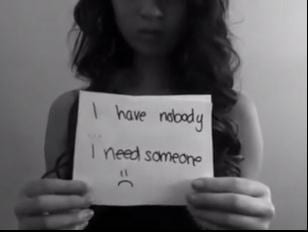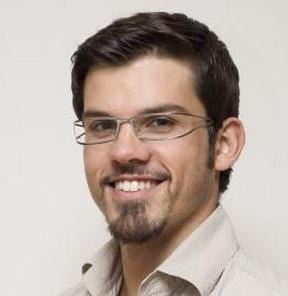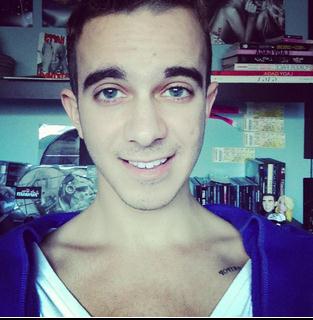
Some of the bullying directed at Joey Monda on the social media picture-sharing service Instagram. Credit: Courtesy photo

Vancouver-area teen Amanda Todd killed herself after prolonged vicious bullying in school and online. Credit: Screencap

NDP MP Dany Morin. Credit: Xtra file photo
For two straight weeks, a complete stranger repeatedly subjected 19-year-old Joey Monda to an onslaught of homophobic cyberbullying, calling him a “cocksucking faggot” who will “die from AIDS.”
The attacks happened in early October on the social media service Instagram. The online attacker appears to have targeted Monda simply because he is openly gay, loves Lady Gaga and is proud to tell the world he is “born this way.”
Monda, who just came out to his family in February, says the bullying escalated as soon as he started to alert his friends and fight back.
“I haven’t told my family because I just opened up to them about being gay, so I don’t want them to get the wrong impression,” he says. “They were very accepting, so I don’t want to ruin that. I am a strong person and I won’t let an Internet bully affect my life.”
The bully’s Instagram account, @toshniquabarbz, was eventually shut down after more than a week. But Monda says the bully returned days later with a new account, this time using the handle @faggymonda, which was swiftly deleted the next day, presumably by Instagram. So far, the bully hasn’t resurfaced on a new account.
“I’m hoping it’s done now,” Monda says. “She kept messaging me, on and on. I told her I called the cops, but nothing seemed to faze her. It was really frustrating and really sad. I’m just so thankful I had so much support.”
Concerned about his safety, Monda’s boyfriend called Toronto police, who advised him to “ignore it.” Oakville police, on the other hand, are investigating, he says.
Monda is certainly not alone. Last week, Vancouver-area teen Amanda Todd killed herself after prolonged vicious bullying at school and online.
The 15-year-old girl described the harassment that drove her to suicide in a chilling YouTube video using Bob Dylan-style cue cards. The bullying has continued online even after her death.
As a result of the bullying, Todd developed anxiety and depression and became reclusive, eventually turning to drugs and alcohol, she says in the video.
NDP MP Dany Morin says he was also bullied in his youth. That’s why he put bullying front and centre in the House of Commons Sept 15.
“When I was bullied from age 10 to 15, the verbal taunts involved homophobia,” he says. “Bullying leaves lasting scars that don’t easily go away.
“But mostly, I have had to rise in the House too many times this past year to note the passing of young Canadians who committed suicide due to bullying.”
Last year, 15-year-old Jamie Hubley committed suicide after years of anti-gay bullying. His death served as a wake-up call for many in Canada that not enough is being done to protect and support youth who are targets of harassment.
Morin’s motion calls for the creation of a House of Commons non-partisan committee to develop a national bullying prevention strategy that would examine the prevalence and impact of bullying and find ways to prevent it.
When bullying happens in schools, it falls under provincial jurisdiction, he says. “But when we talk about cyberbullying, it falls under federal jurisdiction through telecommunications regulations. This is an opportunity for the federal government to finally be a leader on the bullying issue and make things better for our kids.”
Morin wants the national strategy to include a recommendation that encourages law enforcement across Canada to come together to track and identify cyberbullies, he says.
“I want to put the focus on prevention, rather than criminalization,” he says. “Criminalizing my bully would not have undone the harm done to me.”
During debate Oct 15 in the House, Conservative MP Kellie Leitch questioned whether Morin’s motion is necessary, given that two other parliamentary committees are currently studying the same issue.
All parties want to stop bullying; it’s just a question of what strategy does it best. Morin says this is not a partisan issue.
“The first step of my committee will be to gather up all the different studies that are being done or that have been done,” he says. “This does not overlap. We must build on all of the information.”
Liberal MP Hedy Fry, who introduced her own private member’s bill on cyberbullying last year, said Morin’s motion doesn’t go far enough. She wants to see Parliament consider legislation to prosecute bullies for criminal behaviour.
“Bullying has changed,” she told the House. “With the rise of electronic media, bullying follows you everywhere.”
Fry’s bill, Bill C-273, entitled An Act to Amend the Criminal Code (cyberbullying), was referred to the standing committee on justice and human rights after second reading.
Morin says he plans to work closely with community organizations and schools to make prevention and education a priority.
NDP MP Randall Garrison says Canada urgently needs an effective strategy that addresses the causes of bullying and ways to prevent it.
“Bullying based on sexism and homophobia often ends in violence,” he says. “Society’s attitude to sexism and homophobia all too often validates the bullies.”
In June, the Ontario Liberals passed the Accepting Schools Act, a hard-fought piece of anti-bullying legislation that contains key language that allows youth to create gay-straight alliances (GSAs) in all schools.
Previously, Ontario Catholic schools had denied students the right to start GSAs, or any pro-queer group aimed at preventing bullying and empowering youth.
Egale Canada executive director Helen Kennedy says a national anti-bullying strategy should be coupled with a national suicide prevention strategy. Likewise, any federal initiatives need to work in partnership with provincial education ministries.
“We need concrete action on this,” she says. “Education needs to start at a very early age. We need training for teachers. We need to ensure all education facilities, from elementary to post-secondary, are safe, caring and welcoming for everyone. Every education policy in Canada needs to have language protecting LGBTQ students.”
Morin, who tabled his motion in June, says the second hour of debate will likely take place in November, with the vote held the following week.
“Once bullying was considered a right of passage, a way for kids to ‘toughen up,’ but not anymore. People realize how serious it is. It can, and often does, lead to tragedy,” he says. “Kids should not have to live with this kind of hell.”

 Why you can trust Xtra
Why you can trust Xtra


